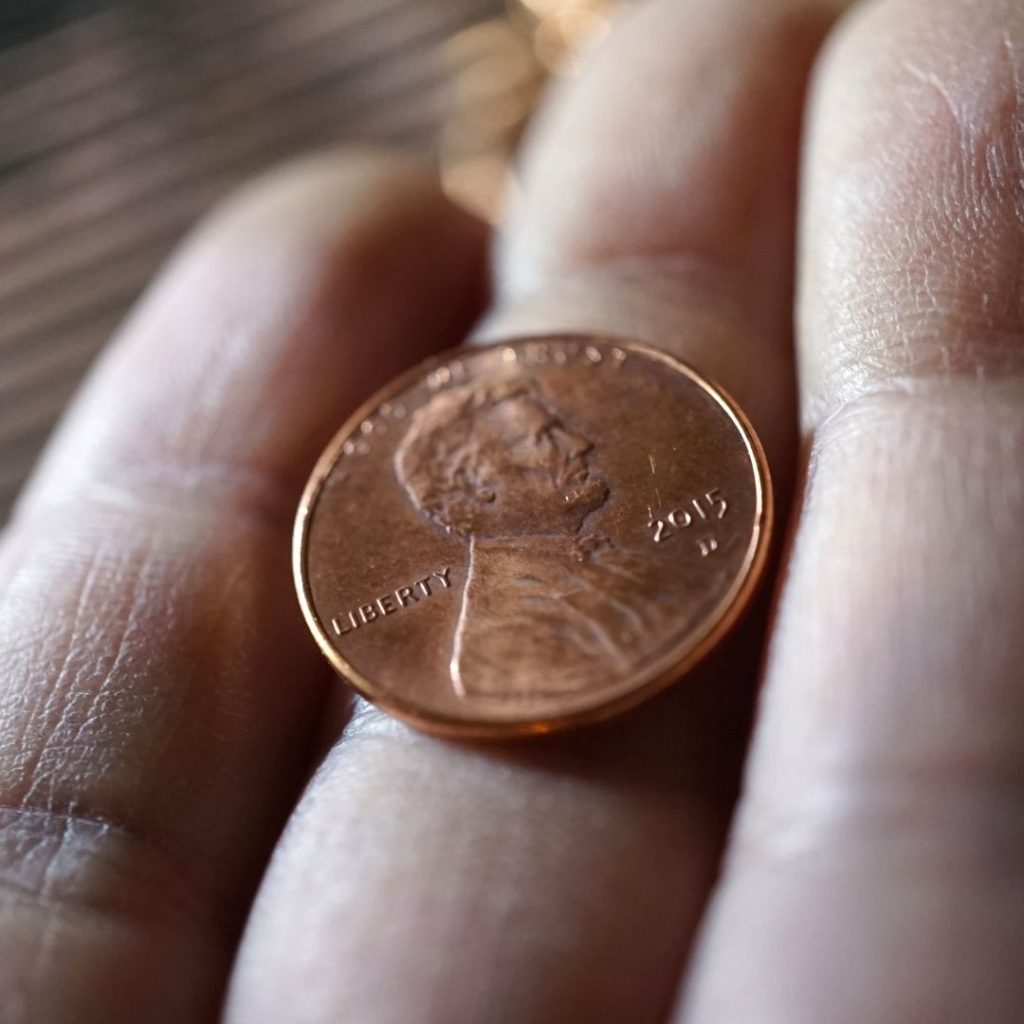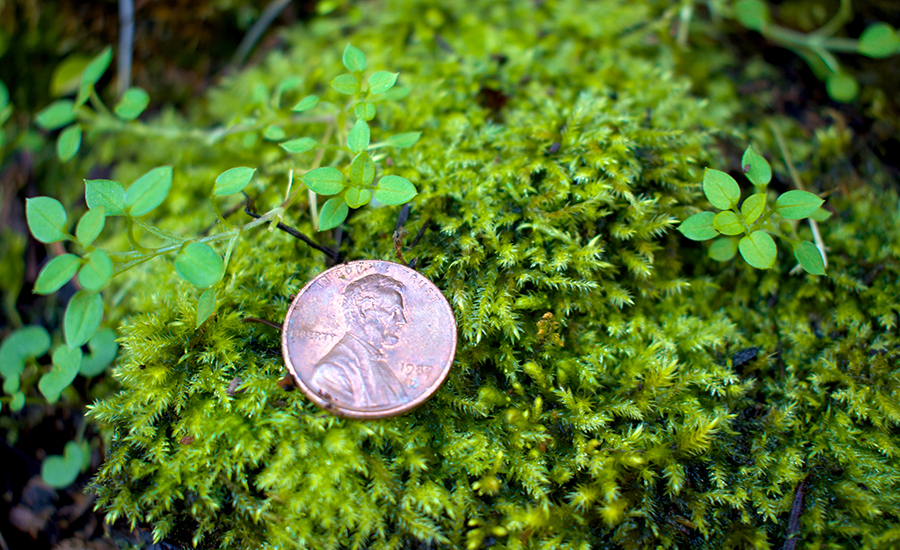Throughout history, money has been entwined with superstitions and folklore. From ancient beliefs about the power of coins to modern quirks about specific bills, people have long sought to make sense of their financial fortunes through symbolic gestures and sayings. And, whether it's picking up a lucky penny or tossing coins into a fountain, these money superstitions reveal a lot about our fears, hopes, and connection to the past.
Here are a few well-known money superstitions and their origins:
1. See a penny pick it up, and all day long you’ll have good luck.
There are many variations on this classic rhyme, but most originate from old pagan beliefs about the mystic qualities of metals. The saying we know today was originally "see a pin and pick it up, and all day long you'll have good luck." This tradition dates back to a pagan (later Wiccan) ritual, where pins were sometimes used in good luck spells. The idea was that a dropped pin might have carried magical intent and would bring good fortune to whoever found it. Over time, the saying evolved into a simple rhyme passed down through generations as a playful encouragement to embrace luck wherever it's found, even in small amounts.
Today, the penny has come to symbolize luck (both good and bad) and fortune. In times when pennies had more significant value, of course, finding one was considered a sign of good luck or a potential blessing. Now, the act of picking up a found penny is believed to bring prosperity or good fortune throughout the day—unless, of course, that penny is face down. It’s unclear where the association began, but the heads on the penny became associated with prosperity. The tails-up penny became associated with evil or bad luck. To this day, many people will not touch or pick up facedown coins for fear of inviting bad luck.
2. Toss a coin in the fountain
The practice of throwing coins into a fountain dates back to ancient times when people believed water sources had divine or healing powers. In Roman and Celtic cultures, offering coins to water deities was seen as a way to gain favor, such as protection or good health. Over time, this evolved into the modern-day custom of tossing a coin into a fountain while making a wish. (Not quite the same as tossing a coin to your Witcher, but the idea of trading a coin for a favor lives on.) The act represents an exchange—offering something of value (a coin) in hopes of receiving a positive outcome, whether luck, love, or other desires. This tradition remains a common practice today, especially at historic fountains (like the Trevi Fountain), wells, and watery tourist attractions around the world, like Charles Bridge in Prague and the Lincoln Memorial Reflecting Pool in Washington, D.C. (although the practice is prohibited there).
3. Purse on the floor, money out the door
This Chinese proverb reflects an old belief rooted in respect for money and financial stability. The phrase warns purse carriers that leaving their bag on the ground symbolizes carelessness or disregard for one's wealth. In many cultures, placing a purse on the floor is seen as bad luck because it invites money to "leave" or slip away. The concept is tied to the symbolic value of keeping money elevated and well-protected. It reflects the notion that how you treat your possessions affects your financial fortune. Of course, there's also a practical side to the proverb since an unwatched purse is much easier to steal.
4. Money Under the Mattress
In some traditions, placing a coin or a few small bills under your mattress is said to protect your finances and invite good fortune. This practice is rooted in the idea that keeping money close while you sleep can help safeguard it and attract prosperity in the coming days. Of course, we recommend that you keep most of your money in your savings account or checking account, but a few coins under your Serta can’t hurt.
A Penny for Your Thoughts

The phrase “a penny for your thoughts” dates back to the early 16th century and was first recorded by Sir Thomas More in 1522.
In those days (much like today), pennies were small but meaningful. They could be used in everyday transactions, but they also carried symbolic weight. Asking someone for a penny was a polite way to request their thoughts-acknowledging that even the smallest token could hold value.
Over time, this idea-that tiny objects could influence outcomes-tied naturally into superstitions. Just as a penny could represent a person's musings, coins came to be seen as carrying luck, blessings, or even magical potential.
5. Empty Wallet = Bad Luck
In many cultures, carrying an empty wallet is considered bad luck, believed to signal financial misfortune or block the flow of wealth. To avoid this, people often keep at least one coin on hand. Carrying a lucky coin-whether from childhood, a foreign country, or simply one with personal significance-is thought to attract prosperity and invite good fortune into your life.
6. “Odds” Are in Your Favor
Similarly, for many, the number of coins matters as much as the coins themselves. Odd numbers are often considered lucky, while even numbers can supposedly bring misfortune. So, whether you're saving, gifting, or tossing coins into a wishing well, choosing an odd number is thought to help keep good fortune on your side.
7. Don’t Sweep Wealth Away
In parts of Asia, sweeping or throwing away coins is considered bad luck, as it's believed you're literally sweeping away your fortune. To keep wealth and prosperity close, many traditions advise leaving coins where they fall or carefully collecting them instead of discarding them.
8. Something old, something new…here’s some money for your shoe?!?
“Something old, something new, something borrowed, something blue, and a sixpence in your shoe” is the famous rhyme that engaged couples often follow in pursuit of good luck on their wedding day. The first part of the phrase is commonly known. The bit about the sixpence is less widely followed—especially since the sixpence has been out of circulation for decades. The rhyme dates back to Victorian England and refers to what was thought to be a recipe for a successful marriage. The “old” was meant to celebrate the bride and groom’s roots while the “new” was a nod to their future. The “something borrowed” was supposed to be transferred from a happily married woman to the new bride in hopes of passing on the good luck. “Blue” is representative of fidelity, love, and purity. The sixpence—traditionally given by the father of the bride—was a symbol of his wishes for the couple’s happiness and prosperity.
9. As phony as a two-dollar bill
This is a funny one because two-dollar bills are very real. However, American beliefs about them are ripe with superstition and intrigue. Although the bill has always been legal tender, it’s rare—especially compared to the $1, $5, $20, or other denominations. This rarity has made it a symbol of both good and bad luck. Some people believe that possessing a two-dollar bill brings fortune, particularly when kept in a wallet or purse. The superstition may stem from the fact that there are fewer two-dollar bills in circulation, so they are often seen as a novelty. However, there’s also a negative connotation, as some associate the bill with misfortune or poor sales, especially in gambling or business dealings. This mixed reputation has made the two-dollar bill a quirky symbol of wealth, luck, and occasional suspicion in American culture.
10. Itchy palms? Keep an eye on your wallet.
Many cultures have long associated itchy palms with money and luck. However, the meaning varies depending on which hand is affected. Some believe an itchy right palm indicates financial gain, while an itchy left palm signifies that money will soon leave your hands. This belief traces back to ancient civilizations, particularly in Europe, where itching was seen as a sign of energy or change. The correlation with money likely arose from the idea that hands are the primary tools for exchanging currency. Thus, any unusual feeling in the palms symbolized an imminent shift in one’s financial situation. To this day, the superstition persists, and we reference itchy palms as a lighthearted predictor of financial fortunes.
So, are your palms itchy? Did you pick up any pennies lately? Some of these beliefs might seem quirky-or downright silly-today, but they all reflect a simple, universal hope: a little extra control over our financial fortunes. And, whether it's an old rhyme, a quick gesture, or a habit we practice with a smile (knock on wood, anyone?), these traditions have a way of sticking. So, the next time you spot a penny, you might just pause and wonder-what kind of luck is headed your way?
Want to learn more fun facts about money?
- Check out our article on the history of money from ancient civilizations to today.
- Learn the muddy history of the piggy bank.
- Discover what those blue NCUA signs at your local branch mean.
